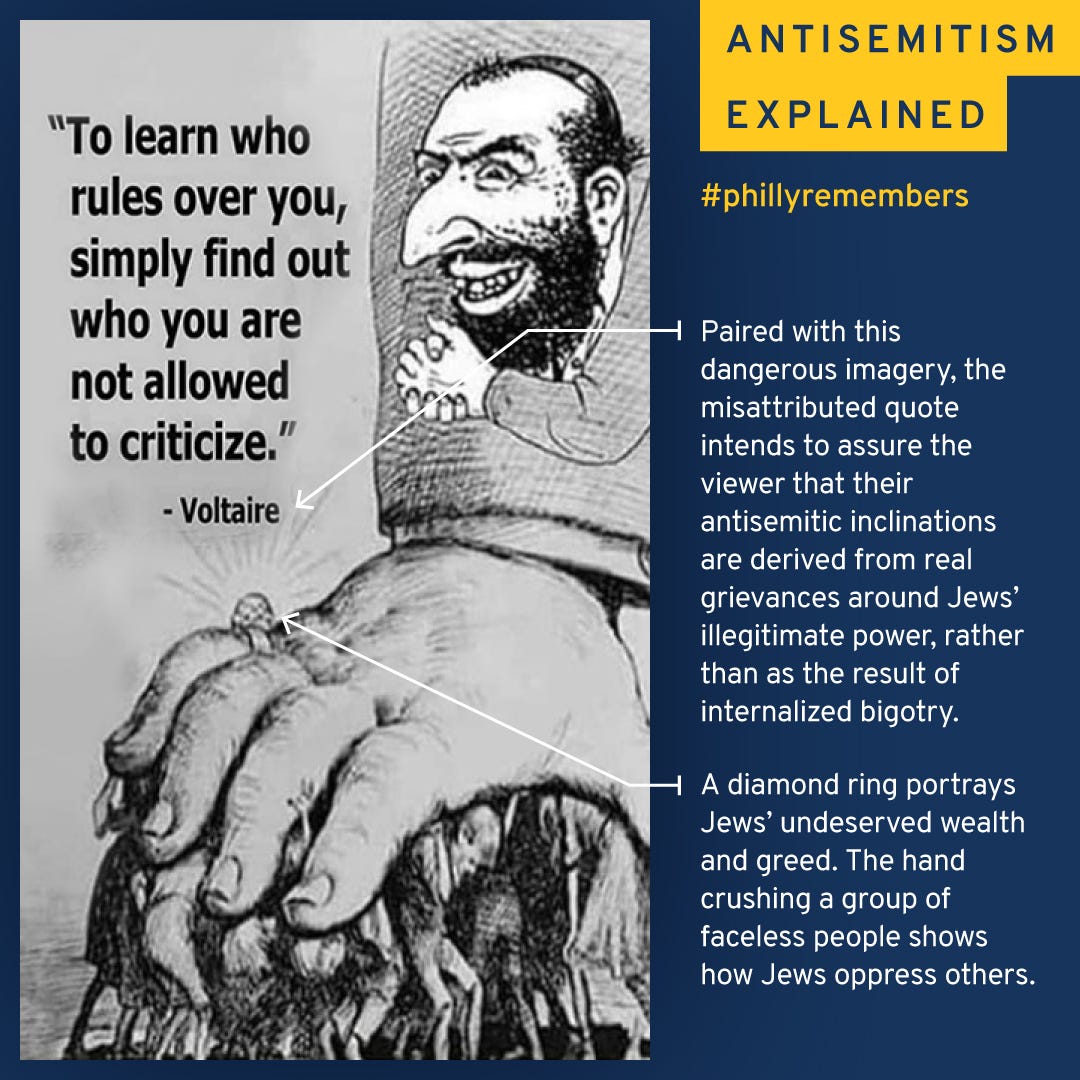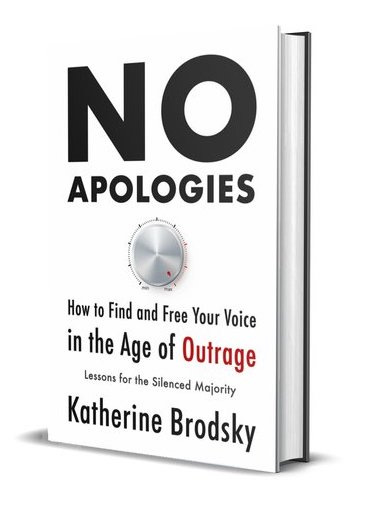
For the umptenth time, let’s talk about the term “Zionist.”
What it actually means: Zionism historically began as a nationalist movement in the late 19th century, advocating for the re-establishment of a Jewish homeland in what is now Israel. A Zionist, thus, is someone who supports the rights of Jewish people to self-determine in their ancestral land, the Land of Israel.
It doesn’t mean anything else but that.
It doesn’t mean that there’s some consensus on how that’s achieved, how it functions, two-states vs one-state, or some sort of worldview, none of that.
Today, Israel exists. That’s the reality. So those who support Israel today merely believe that it should continue to exist—vs being obliterated. On everything else, there’s a wide range of views.
And yet, in the context of the current war in the middle east, it has been widely used as a slur, a catch-all label for anything perceived as malevolent. “Zionists” are supremacists, they are evil demons, they are baby killers, genocide supporters, they control the world, and so on and on.
It’s applied liberally to anyone who supports Israel. (Which we are not arbitrating in this piece today and I hope you consider the arguments I outline with an open mind, regardless of your stance on the actual conflict).
Of course, while not always, “Zionist” is often used as a stand-in word for Jew, to cloak antisemitic sentiments while providing plausible deniability. It has become its own type of boogeyman which encapsulates all sorts of perceived evils, which usually have nothing to do with either its original meaning, nor reality. Still, most often it is aimed at Jews and not just people who support the existence of Israel, which hints at its underlying motives.
How else do you explain this fascinating paradox where you have people who profess to “love Jews” yet attack Zionists using the same stereotypes and slurs historically associated with antisemitism. These include:
The belief that “Zionists” secretly control the world through shadowy networks, and manipulate the media, governments and economies for their own means. This trope dates back to fabricated texts like “The Protocols of the Elders of Zion” which fuels many antisemitic conspiracy theories.
The accusation of dual loyalty is often lodged at “Zionists.” It stems from the idea that Jews, specifically, are more loyal to Israel than to their own countries. This same accusation is rarely echoed towards anyone else who has ethnic origins elsewhere.
Jews are often depicted as greedy and money-hungry, with a lot of Nazi imagery in particular propagating this. Today, I’m seeing a recycling of the same images in the form of various memes, usually accusing “Zionists” of controlling global financial systems.
Blood libels are also very common in antisemitic propaganda. For years, Jews were accused of murdering Christian children for their blood, so that it could be used in religious rituals (obviously no such rituals exist). Today, these accusations take place against “Zionists” who are accused of things like running huge satanic cults and drinking the blood of Palestinian children.
For all the claims that it’s just “Zionists” who are being targeted, so much of the imagery portraying them includes religious garb, big noses, evil expressions, and all sorts of other stereotypical images of Jews. Yet, if the issue people have is with those who support Israel—which extends to far more than Jews and includes many Christians—why are Zionists portrayed pretty much exclusively using negative stereotypes of Jews?
These are just a few examples.
Unlike other geopolitical conflicts where criticisms are generally directed at a country or its government—such as the U.S. during the Vietnam War or Russia in the context of Ukraine—the term "Zionist" is not confined to the actions of the Israeli state.
Instead, it is used to broadly accuse individuals, groups, or even entire communities of various wrongdoings, without nuance or distinction. The label doesn’t serve to merely vilify the policies or actions of the Israeli government, but also those who are associated with Zionism in any way, regardless of their personal beliefs or actions (eg. if you support Israel’s existence, therefore you also support genocide, ideas of supremacy, are a racist, don’t care about abuses, and if you’re a Jewish person with any power, you also control the U.S. gov, etc).
In, say, the Russia-Ukraine conflict, most criticism is directed at "Russia" or "the Kremlin," or just “Putin” rather than some nebulous term that could be applied to anyone with a connection to Russia or supports it. Those who criticized the Iraq War, didn’t have some term that implicated all Americans. They targeted the “U.S. government” or “American military forces.”
They didn’t take a word and divorce it from its meaning to build up some evil entity.
No.
But in this conflict, Jews (and sometimes their supporters) are singled out in this way.
So why do it?
It is a way of dehumanizing a group of people, reducing them from individuals to some sort of monolithic entity responsible for all manner of evils.
If “Zionists” are racist, supremacists, who cheer for genocide, “love killing babies,” and control the world—ruining all of it for their own benefit and view the “goy” as “cattle”—then isn’t it only right that the world should be wiped of them? Isn’t discrimination and violence against them justified? Isn’t it the right thing to do, to get rid of these “demons”? I hear this a lot.
The Nazis had much of the same rhetoric. They saw themselves as the good guys battling evil. They didn’t view Jews as individuals, but rather as a collective who all behaved and thought the same, making them easy to scapegoat for their internal problems. Nazi propaganda systematically depicted Jews as subhuman, dangerous, and conspiratorial, using language and imagery to instill fear and hatred among the populace. A lot of the images we see used by many individuals who purport to be pro-Palestinian, both online and at protests, employ many of the exact same images while superimposing the words “Zionist.”
In Nazi Germany, Jews were blamed for societal and economic problems, portrayed as threats to national purity and stability, and accused of plotting global domination—a narrative disturbingly similar to some modern uses of "Zionist."
This was used to justify the atrocities that followed. They were made possible because the Nazis were effectively able to erase the humanity of Jews. According to historical accounts, by the time the “Final Solution of the Jewish Question” was discussed and coordinated at the Wannsee Conference in 1941— which meant the attempted annihilation of 11 million European Jews—there was no debate on whether it was the right thing to do. Only clamoring over who would be most helpful in facilitating this…activity.
Today, in some circles—hopefully limited ones—the “Final Solution” is being discussed openly in regards to “Zionists.”
Whether one uses “Jew” or “Zionist” as a derogatory rhetoric device, doesn’t matter so much. In these hands, it’s a tool of dehumanization that conflates a wide range of opinions and actions as one, making it easy to dismiss the humanity of individuals.
This usage of “Zionist” as some sort of pejorative is also designed to cast aspersions and vilify anyone who is supportive of a Jewish homeland, or has a different perspective on the ongoing conflict.
If it was about criticism of Israeli government policies, which is an absolutely legitimate act (and one that I and many other “Zionists” engage in ourselves), then these individuals would speak about those actions directly, without the need to use “Zionist” to attack, vilify and dehumanize others.
And there are those, of course, who do not engage in such rhetoric while criticizing Israeli policies and actions. They are entitled to their opinions and voices. Fact-based criticism isn’t only permitted, but is necessary for a healthy society. I’m certainly not in the camp of accusing anyone with criticisms of Israel of being an antisemite—so long as those critiques are based in fact and not fantasy.
But those who opt to focus their time so heavily on denigrating “Zionists” are not as interested in engaging in legitimate criticism. They prefer to spend their time attacking individuals as a collective based on an identity they’ve concocted and appropriated an existing word for, rather than focusing on specific policies or actions.
Such actions simplify a complex situation and cast one side as being “good” and the other as “evil.” “Zionists” are being framed as, quite literally, “enemy of the people.” These are the words being used, liberally. The natural consequence of that kind of thinking is…what?
☕️ By popular request, you can also support my work by making a one-off donation via Buy Me a Coffee.
Order my book, No Apologies: How to Find and Free Your Voice in the Age of Outrage―Lessons for the Silenced Majority —speaking up today is more important than ever.
NOTE TO READERS:
Thank you for keeping me company. Although I try to make many posts public and available for free access, to ensure sustainability and future growth—if you can—please consider becoming a paid subscriber. The more paid subscribers I have, the more time I’ll have to work on new essays.
In addition to supporting my work, it will also give you access to an archive of member-only posts. And if you’re already a paid subscriber, THANK YOU!








Most scholars of nationalism no longer believe in the divide between civic vs ethnic nationalism (Kohn’s dichotomy), as no state is culturally neutral (not even the U.S. where most states have declared English as their sole official language in response to the demographic growth of the Hispanic community). Israel may insist more on its ethnic character but even Israeli post-Zionists who want to turn Israel into a Hebrew speaking constitutional republic do not want it to be culturally neutral. There is certainly room for improvement, but blaming Israeli Jews for refusing to become a minority has nothing to do with "civic nationalism". No country is devoid of political ethnicity.
Back to proud designation. I was told not to call myself a zionist because it's a slur by someone who had no real opinion on israel.
I now just say it proudly all the time.
https://marlowe1.substack.com/p/editing-teddy-bear-cannibal-massacre